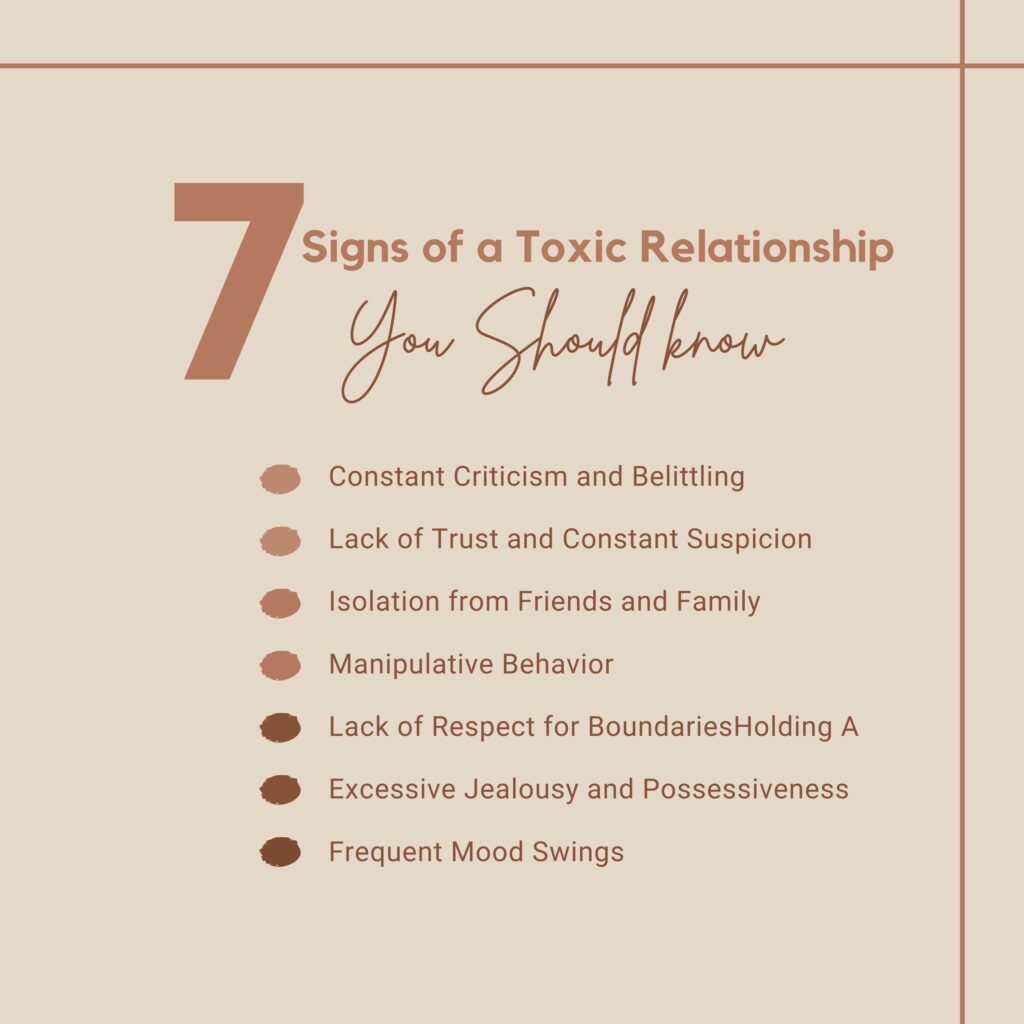In today’s fast-paced world, maintaining healthy relationships is more important than ever. Yet, identifying the telltale signs of a toxic relationship can sometimes be challenging, especially for young adults and couples who are still navigating the complexities of emotional intimacy. This blog aims to shed light on the red flags that may indicate you’re in a toxic relationship. Awareness of these red flags is the first step towards fostering mental health awareness and promoting healthier, authentic connections.
What is a Toxic Relationship?
A toxic relationship is one where the negative aspects significantly outweigh the positive. Over time, these negative elements can drain your energy, self-esteem, and overall well-being. Recognizing the early warning signs can help you take necessary actions before the relationship becomes more harmful.

Red Flags to Watch Out For
1. Constant Criticism and Belittling
Healthy relationships thrive on mutual respect and admiration. If your partner frequently criticizes or belittles you, it can lead to a severe erosion of self-worth.
- Example:
- “You’re always messing things up.”
- “Why can’t you be more like [someone else]?”
2. Lack of Trust and Constant Suspicion
Trust is the foundation of any strong relationship. If your partner is constantly suspicious of your actions, it could create an environment of insecurity.
- Example:
- Checking your phone without permission.
- Accusing you of lying or cheating without evidence.
3. Isolation from Friends and Family
A loving partner should encourage you to maintain healthy bonds with friends and family. If your partner isolates you from your support network, it’s a significant red flag.
- Example:
- Discouraging you from meeting friends.
- Making you feel guilty for spending time with loved ones.
4. Manipulative Behavior
Manipulation can take many forms, from guilt-tripping to gaslighting. If your partner manipulates the situation to make you feel at fault or question your reality, it’s a serious concern.
- Example:
- “If you loved me, you would do this for me.”
- Denying events or conversations that took place.
5. Lack of Respect for Boundaries
Respecting personal space and boundaries is crucial for a healthy relationship. If your partner consistently disregards your boundaries, it shows a lack of respect and consideration.
- Example:
- Pressuring you into uncomfortable situations.
- Ignoring your need for privacy or alone time.
6. Excessive Jealousy and Possessiveness
While some jealousy is natural, excessive jealousy and possessiveness can be suffocating. It often stems from insecurity and can manifest in controlling behavior.
- Example:
- Monitoring your whereabouts constantly.
- Making you feel guilty for interacting with others.
7. Frequent Mood Swings
Extreme mood swings can create a volatile environment where you feel like you’re walking on eggshells. Consistent unpredictability in emotions can be exhausting and destabilizing.
- Example:
- One moment they’re affectionate, the next, they’re distant or angry without clear reason.
- Overreacting to minor issues.
Taking Action
Recognizing these red flags is a crucial first step. Here are some actionable steps you can take:
1. Self-Reflection
Take time to reflect on your feelings and experiences in the relationship. Journaling can be a helpful tool to gain clarity.
2. Seek Support
Talk to trusted friends or family members about your concerns. Sometimes, an outsider’s perspective can provide valuable insights.
3. Consult a Professional
Therapists and counselors specialize in relationship dynamics and can offer guidance and support. Don’t hesitate to seek professional help if needed.
4. Set Boundaries
Communicate your boundaries clearly and assertively. If your partner respects them, it’s a positive sign. If not, it may be time to reconsider the relationship.
5. Consider Your Well-Being
Your mental and emotional well-being should always be a priority. If you find that the relationship is consistently detrimental to your health, it may be time to walk away.

Final Thoughts
Toxic relationships can have a profound impact on your mental health and overall happiness. By recognizing the red flags and taking proactive steps, you can protect yourself and foster healthier, more fulfilling connections. Remember, you deserve to be in a relationship that uplifts and supports you.
For further guidance and support, consider reaching out to mental health professionals who can provide personalized advice and strategies tailored to your situation.
—
Remember, the first step towards change is awareness. Stay informed, stay connected, and prioritize your well-being.
